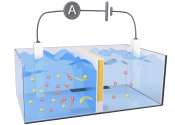Salt is a dietary mineral composed primarily of sodium chloride that is essential for animal life, but toxic to most land plants. Salt flavor is one of the basic tastes, an important preservative and a popular food seasoning.
Salt for human consumption is produced in different forms: unrefined salt (such as sea salt), refined salt (table salt), and iodized salt. It is a crystalline solid, white, pale pink or light gray in color, normally obtained from sea water or rock deposits. Edible rock salts may be slightly grayish in color because of this mineral content.
Chloride and sodium ions, the two major components of salt, are necessary for the survival of all known living creatures, including humans. Salt is involved in regulating the water content (fluid balance) of the body. Salt cravings may be caused by trace mineral deficiencies as well as by a deficiency of sodium chloride itself. Conversely, overconsumption of salt increases the risk of health problems, including high blood pressure.









